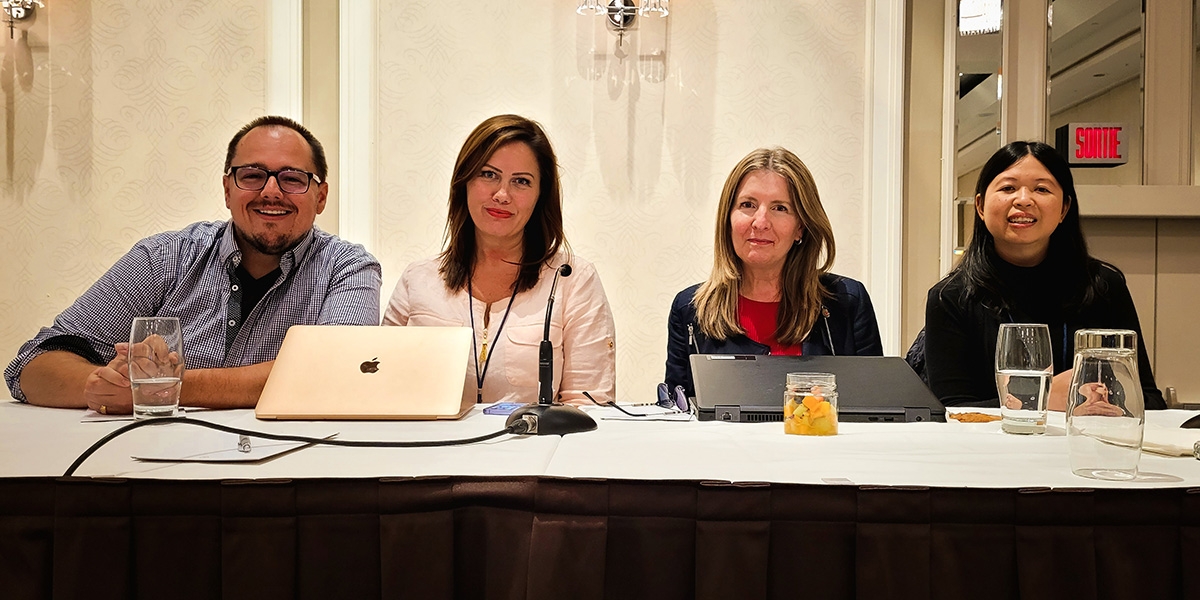PhD in Education students present benefits of PhD Cohort Model at CAGS annual conference

Pictured Left to Right: Christopher Godfrey, Rebecca Kasperavicius, Lynn Cummings, Man Tran
Nipissing University PhD in Education students Christopher Godfrey, Rebecca Kasperavicius, Lynn Cummings, Vuong Tran and Man Tran, presented their panel, “We’re all in this Together: Benefits of a PhD Cohort Model” on Thursday, November 3 at the Canadian Association for Graduate Studies (CAGS) 60th Annual Conference held in Montreal, Quebec.
The theme of the 60th Annual Conference was "The Future of Graduate Studies: Toward Local and Global Relevance.” The conference aimed to highlight the opportunities and challenges of our time. The conference sought to recognize “that the pressures and demands that are placed on researchers, scholars, and professionals in graduate studies have grown in recent years, and that new understandings about work, education, and life are fundamentally disrupting the way our society is ordered. As we begin to build this post-normal world, graduate studies will have a profound role to play.”

The panelists represented five of ten students in the PhD 2020 cohort. Their panel discussion offered insights into the cohort model that the PhD in Education program offers at Nipissing University. However, this cohort, found something quite special in their group: the peer-to-peer support they offered one another throughout the Covid-19 pandemic and beyond.
A typical start to the PhD in Education program at Nipissing University starts with a summer residency in July for years one and two of the program. PhD students are required to be on campus for a rigorous four weeks of classes, professional development, and team building. Due to the various lockdowns and closures, the PhD 2020 cohort was moved to an online virtual format for both of their summer residencies.
The group faced questions such as, how do we grow as a team if we aren’t ever face to face? How will we endure graduate education without peer support? They took it upon themselves to build their own network of support.
Meeting in person for the first time at the CAGS 2022, the panel shared their experiences and highlighted the importance of a cohorting model of student development and support for postgraduate learning. Through a case-study methodology, this session discussed a cohorting approach, shared strategies of improving student physical and mental health, PhD student retention and degree completion statistics, and what this group has done to foster a culture that embraces the notion that "we are all in this together".
Learn more about our PhD in Education students at www.nipissingu.ca/phd/.
